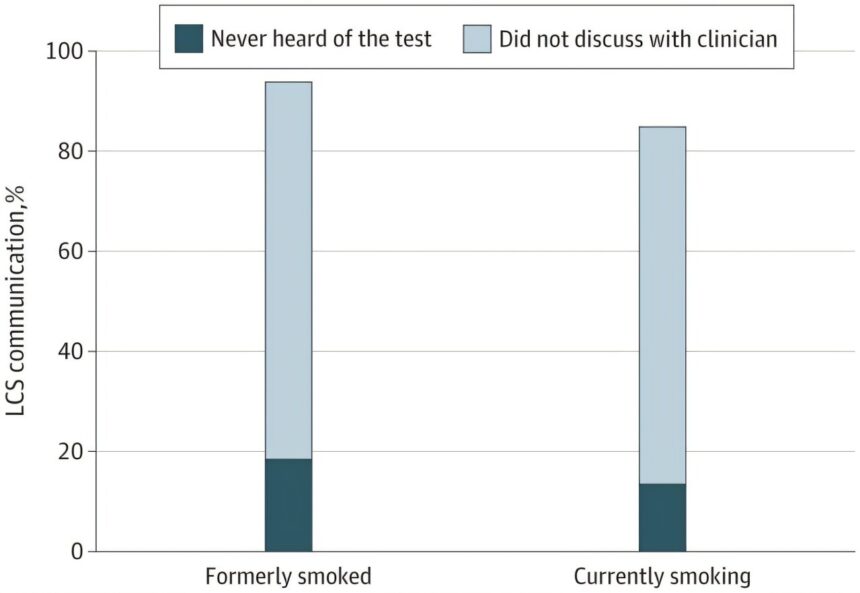Lung cancer is a deadly disease that claims more lives than breast and colorectal cancer combined. However, there is a screening test available that has been proven to save lives. Despite its effectiveness, a large percentage of eligible individuals have never even heard of this screening test or discussed it with a healthcare provider.
According to Dr. Gerard Silvestri, a pulmonologist specializing in lung cancer, approximately 80% of eligible individuals have not been informed about lung cancer screening. This lack of awareness prompted a group of researchers from the MUSC Hollings Cancer Center to investigate the levels of awareness regarding this life-saving screening test. Their findings were published in the prestigious medical journal JAMA Network Open.
The screening test for lung cancer involves a low-dose CT scan of the lungs, which is a painless and noninvasive procedure. This scan can detect early-stage lung cancers that can be treated effectively if caught early. Unfortunately, the uptake of this screening test across the nation is less than 20%.
Dr. Kalyani Sonawane, a cancer disparities researcher and lead author of the study, emphasized the importance of communication between healthcare providers and patients regarding the availability of lung cancer screening. The researchers utilized data from a National Cancer Institute survey to assess awareness levels among individuals who were former or current smokers.
The survey revealed that a significant percentage of individuals had never heard of lung cancer screening or discussed it with a clinician. This lack of awareness is concerning, especially given the proven benefits of early detection in improving treatment outcomes.
Dr. Benjamin Toll, co-director of the lung cancer screening program at MUSC, highlighted the need for healthcare providers to prioritize discussions about lung cancer screening, especially with current smokers who are at a higher risk. However, he acknowledged the challenges faced by primary care doctors in managing multiple screening tests during brief office visits.
One of the key barriers to increasing awareness and uptake of lung cancer screening is the stigma associated with smoking and the fear of self-blame for developing lung cancer. Efforts are being made to incorporate reminders about lung cancer screening into electronic health records, but operational challenges persist.
Despite these challenges, MUSC has been expanding its lung cancer screening program and achieving promising results. The program has diagnosed a significant number of early-stage lung cancers, providing patients with a better chance of a cure.
In conclusion, raising awareness about the availability and benefits of lung cancer screening is crucial for improving early detection and reducing mortality rates. Healthcare providers play a vital role in initiating conversations about screening with their patients, especially those at high risk. By increasing communication and access to screening programs, more lives can be saved from this devastating disease.







